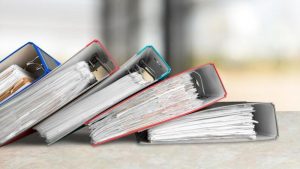Learn about the essential documents required to apply for a personal loan and how to streamline the application process for approval.
Personal loans are a popular financial tool used for various purposes, such as consolidating debt, paying for medical expenses, or funding home improvements.
Unlike secured loans, personal loans are typically unsecured, meaning they do not require collateral.
Also Read
However, to assess your eligibility for a loan, lenders require specific documentation to verify your identity, income, and creditworthiness.
Understanding the documents required to apply for a personal loan can help streamline the process, making it faster and more efficient.
In this article, we’ll explore the key documents you’ll need to provide when applying for a personal loan and how to ensure a smooth application process.
1. Proof of Identity
The first document you will need when applying for a personal loan is proof of your identity.
Lenders need to confirm who you are to ensure the security of the loan process and to comply with legal regulations such as anti-money laundering laws. Proof of identity also helps prevent identity theft and fraud.
Common Documents for Proof of Identity:
- Government-issued ID: This includes your driver’s license, passport, or any other government-issued identification card. The document must be current and valid.
- Voter ID or Aadhaar Card (for India): If you are from India, an Aadhaar card or voter ID card can serve as proof of identity.
- Social Security Number (SSN): In some countries, your SSN may be required as part of the verification process.
Make sure the document you submit has your full name and date of birth clearly visible.
Lenders will also typically require a photo ID to ensure that the person applying for the loan matches the documentation provided.
2. Proof of Address
Lenders need proof of your current residential address to validate that you live at the location you’ve stated on your application.
This also helps them send important documents, including the loan agreement, statements, and other communications.
Common Documents for Proof of Address:
- Utility Bills: A recent utility bill, such as a water, electricity, or gas bill, showing your name and address.
- Bank Statements: Recent bank statements with your name and address clearly listed.
- Lease Agreement: A copy of your signed rental agreement can serve as proof of address.
- Government-issued Documents: Documents such as your voter ID, tax returns, or insurance policy that show your address.
It’s important that the document is dated within the past few months and clearly displays your full name and residential address.
3. Proof of Income
Since personal loans are typically unsecured, lenders want to ensure that you have the financial means to repay the loan.
Proof of income is one of the most critical documents in the personal loan application process.
Lenders want to see that you have a steady source of income, whether from employment, business, or investments.
Common Documents for Proof of Income:
- Recent Pay Slips: Lenders typically require the last two or three months’ pay slips, especially if you are employed. These documents show your monthly income and deductions.
- Bank Statements: Bank statements for the last 3 to 6 months can demonstrate your income deposits and financial behavior.
- Tax Returns: Your income tax returns for the last year or two may be requested, particularly if you are self-employed or own a business.
- Employment Letter: A letter from your employer confirming your salary, position, and length of employment.
- Business Financials: If you are self-employed or a business owner, lenders may request financial statements or documents such as profit and loss statements, balance sheets, and tax returns.
The exact requirements may vary depending on the lender and your employment status. Make sure the income documents you provide are recent and reflect your current income situation.
4. Credit Report
Your credit score plays a major role in the approval process for a personal loan.
Lenders use your credit report to evaluate your creditworthiness, which helps them assess the risk of lending you money.
A higher credit score typically increases your chances of being approved for a loan with favorable terms, such as lower interest rates.
In most cases, the lender will pull your credit report directly from a credit bureau. However, it’s a good idea to request a copy of your credit report from a credit bureau yourself before applying.
This allows you to review your credit history, ensure accuracy, and address any potential issues beforehand.
In some countries, you may be entitled to a free credit report annually. Knowing your credit score before applying can help you understand how likely you are to be approved and the interest rates you may be offered.
5. Employment Details
Along with your proof of income, lenders may ask for more detailed information about your employment status and history.
This helps them determine the stability of your income and your ability to repay the loan. For self-employed individuals, additional documentation is required to demonstrate financial stability.
Common Documents for Employment Details:
- Employment Contract: If you’re employed, an employment contract or offer letter can help confirm your job title, duration of employment, and salary.
- Self-Employed Income Documentation: If you’re self-employed, you might need to provide additional paperwork, such as a business license, profit and loss statements, or tax returns that confirm your income.
In cases where you’ve been employed in the same job for a long time, providing additional employment details can strengthen your application and show stability.
6. Debt Details
In order to assess your ability to repay the personal loan, lenders will often want to know about your existing debts.
This includes any other loans or credit card balances you are currently managing.
By understanding your total debt load, the lender can determine whether you have the capacity to handle more debt.
Common Documents for Debt Details:
- Loan Statements: Statements for any current loans, such as auto loans, student loans, or home loans.
- Credit Card Statements: The latest credit card statements showing your outstanding balance and monthly payments.
- Outstanding Debt List: A summary of your outstanding debts, including amounts owed, monthly payments, and the term of each debt.
Being transparent about your existing debts helps lenders assess whether you’re in a good financial position to take on more borrowing.
7. Personal Assets
In some cases, lenders may ask for information about your assets to understand your financial stability further.
While personal loans are typically unsecured, showing that you have substantial assets can help your case, particularly if you have a limited credit history or lower credit score.
Common Documents for Personal Assets:
- Bank Statements: Statements showing savings, investments, or other liquid assets.
- Property Deeds: If you own property, providing proof of ownership can be an asset.
- Investment Statements: Documents that show the value of your stocks, bonds, or retirement accounts.
While not always required, providing evidence of your personal assets can help reassure lenders about your financial stability.
8. Loan Application Form
Of course, the most important document you’ll need is the personal loan application form itself.
This form collects essential information about you, such as your name, contact details, employment status, income, and the amount you wish to borrow.
Be sure to fill out the application form accurately, as errors or inconsistencies can delay the approval process.
9. Co-signer Information (if applicable)
If your credit is not strong enough to secure a personal loan on your own, or if you’re applying for a large loan, you may need a co-signer.
A co-signer is someone who agrees to take on the responsibility of the loan if you fail to repay it. If you do have a co-signer, the lender will require their documentation as well.
Common Documents for Co-signer:
- Proof of Identity and Address: Similar to the primary borrower, the co-signer will need to provide their proof of identity, proof of address, and income details.
- Credit Report: The co-signer’s credit report will be used to evaluate their creditworthiness.
10. Application Fee (if applicable)
Some lenders charge an application fee to cover the processing costs associated with your loan. Ensure you ask about any potential fees upfront, and be prepared to pay them as part of the application process.
Applying for a personal loan requires submitting several key documents to verify your identity, income, and creditworthiness.
By understanding the documents required and preparing them ahead of time, you can streamline the application process and increase your chances of approval.
Whether you need funds for an emergency, home improvements, or consolidating debt, ensuring that you have all the necessary paperwork in order will help you secure the loan you need efficiently and quickly.














